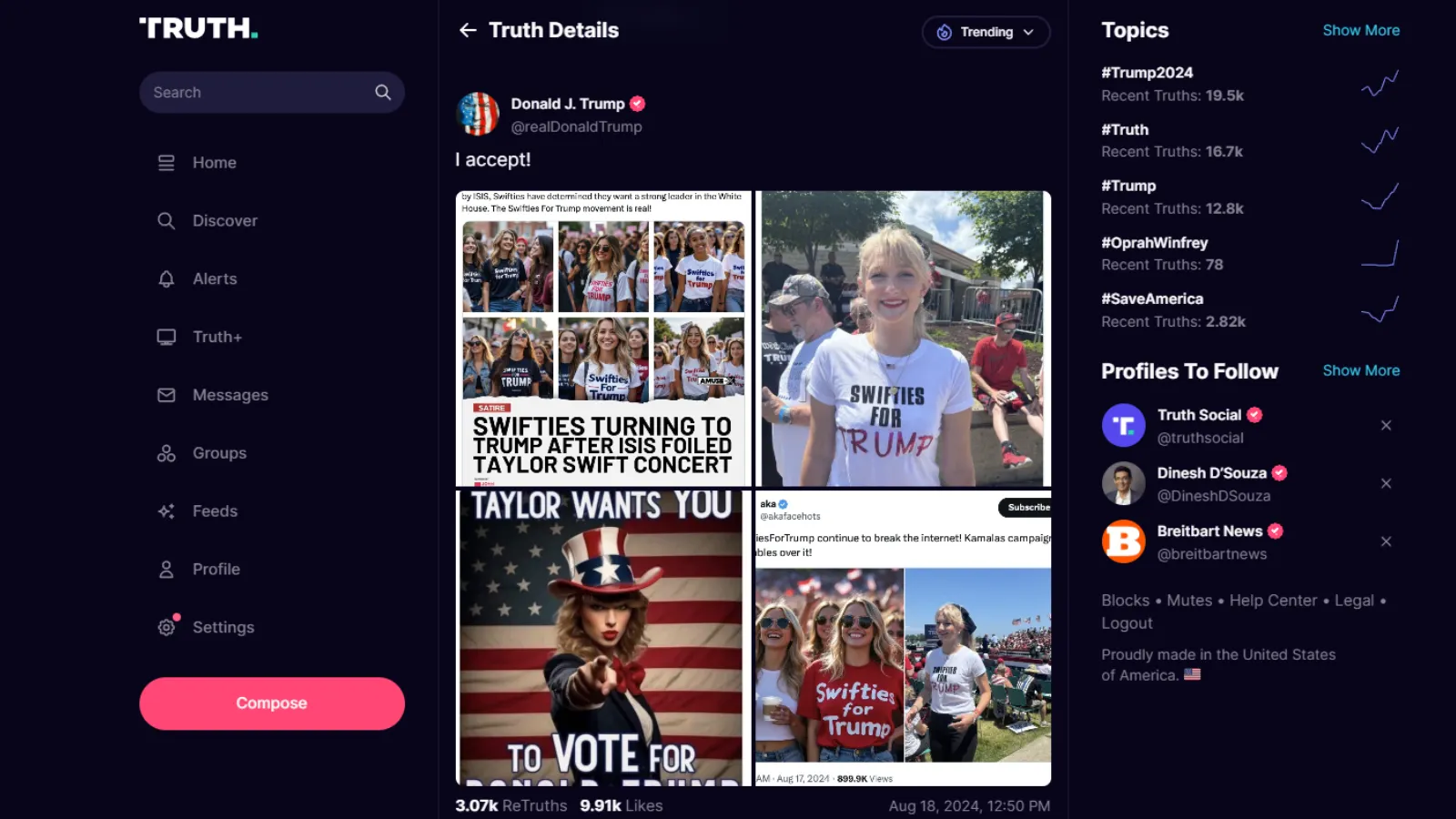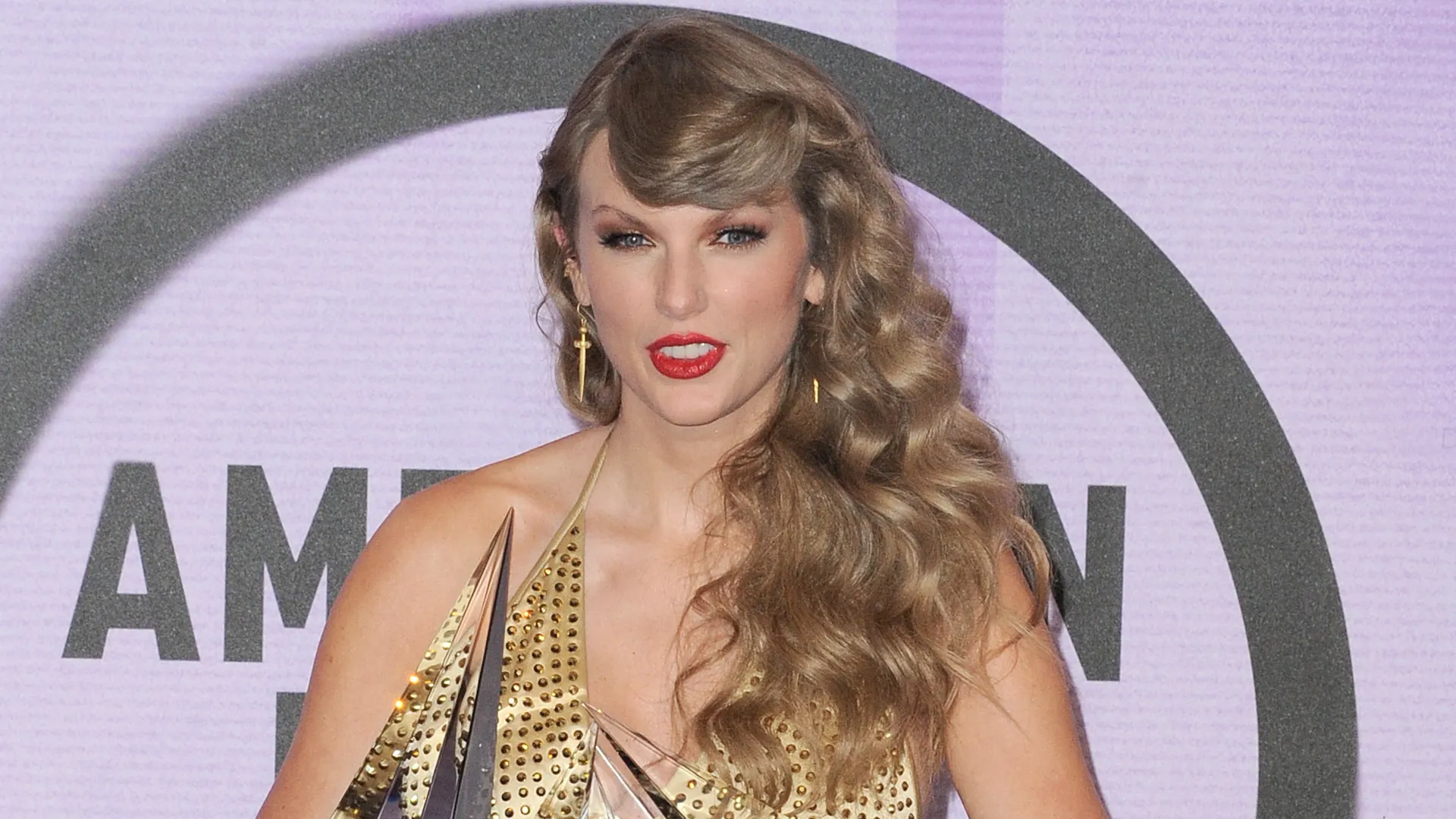Singer Taylor Swift has endorsed Kamala Harris in the U.S. Presidential election race, citing AI-generated deepfake images of her shared by Donald Trump as being behind her decision.
In a post on Instagram, Swift wrote that, "Recently I was made aware that AI of ‘me’ falsely endorsing Donald Trump’s presidential run was posted to his site," adding that the incident, "really conjured up my fears around AI, and the dangers of spreading misinformation."
"It brought me to the conclusion that I need to be very transparent about my actual plans for this election as a voter," Swift said, adding that, "The simplest way to combat misinformation is with the truth," and emphasizing that she would be "casting my vote for Kamala Harris and Tim Walz in the 2024 Presidential Election."
Republican presidential candidate Donald Trump shared a number of deepfaked images on his Truth Social account, including one depicting Taylor Swift mimicking the pose from a Second World War "Uncle Sam" poster, with the text “Taylor Wants You to Vote for Donald Trump.”

Other deepfaked images depicted young women wearing "Swifties for Trump" t-shirts, claiming that the singer's fans were "turning to Trump" after her concerts in Vienna were cancelled following a terrorist threat, which the post attributed to ISIS.
In a subsequent interview, Trump acknowledged that he knew the Taylor Swift images weren't real, stating that, “I don’t know anything about them other than somebody else generated them,” and adding that, “I didn't generate them; somebody came out, they said, ‘Oh, look at this.’ These were all made up by other people.”
Trump added that AI was "dangerous," and that deepfakes are "happening with me, too."
Trump has shared several AI-generated images during his campaign, including one of Kamala Harris addressing a Soviet rally.
Deepfakes are images, video or audio content created using generative artificial intelligence (AI) to depict real individuals in false situations. World leaders, policymakers, and law enforcement have expressed concern over their proliferation, citing their use in scams, political misinformation and non-consensual pornography.
Edited by Stacy Elliott.

